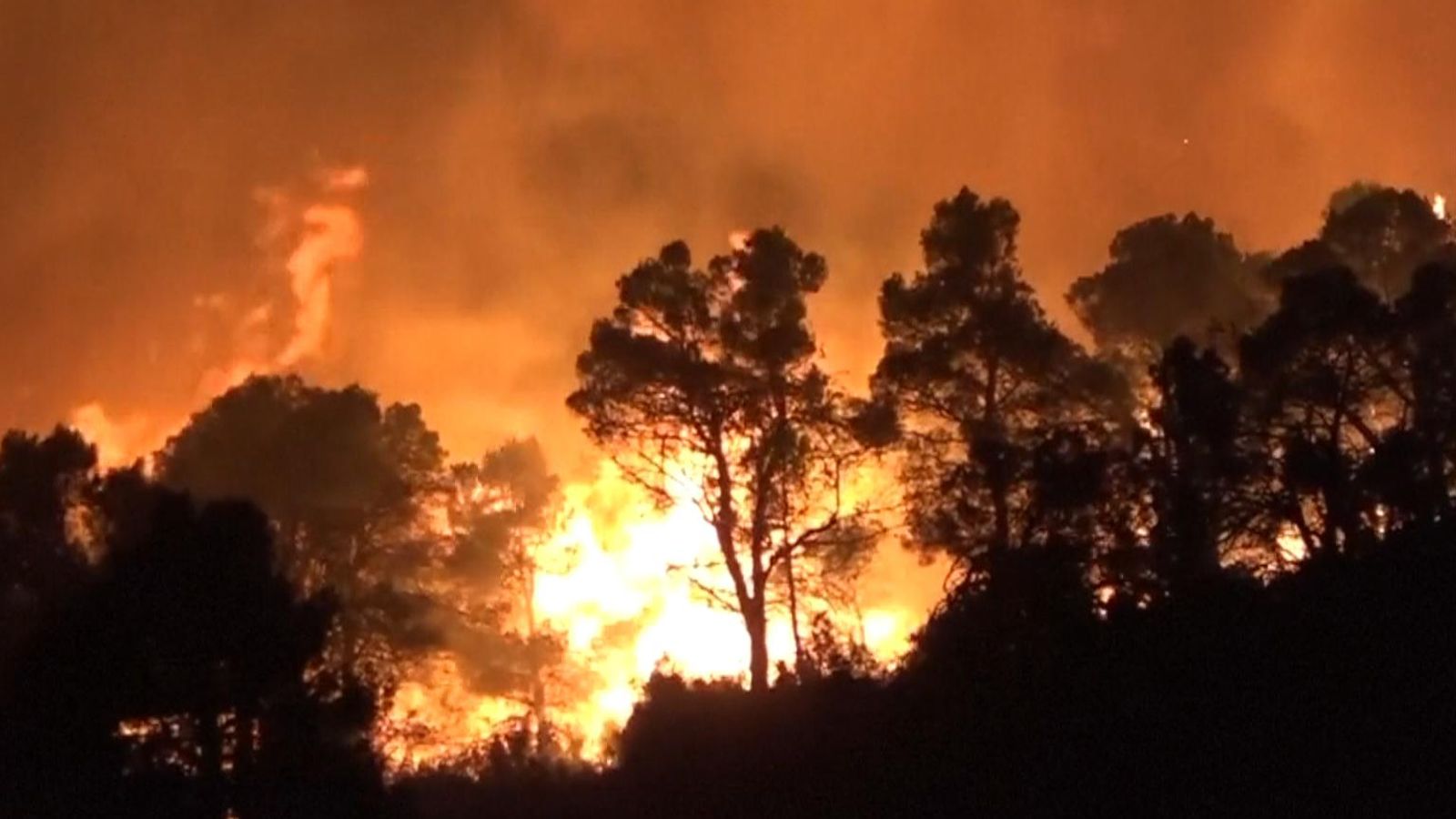
The global temperature is set to break a key temperature limit for the first time within the next five years, the World Meteorological Organisation (WMO) has warned.
There is now a 66% chance of breaching a global average temperature 1.5C at least once between now and 2027 – which would mark the first time in human history.
Almost every country in the world has committed to trying to limit warming to ideally only 1.5C above levels in pre-industrial times.
Nations did this when they signed the historic Paris climate agreement at the COP21 climate conference, in a bid to keep the dangerous impacts of climate change, like floods, rising sea levels and droughts, more manageable.
Breaching 1.5C, while alarming, would not mean the world had permanently surpassed the threshold, scientists stress.
The global average temperature would need to exceed 1.5C many more times before the climate can be said to have permanently warmed to that level.
But it is a sign the world is getting closer, and that humanity’s attempt to reign in climate change, which is caused primarily by burning fossil fuels, may have been too small and too slow.
Dr Leon Hermanson of the Met Office Hadley Centre, one of the experts who led the report, said: “We have never crossed 1.5C. The current record is 1.28C.
“It’s very likely we’re going to exceed that, we might even reach 1.5C – it’s more likely than not that we will.
“It’s not this long-term warming that the Paris Agreement talks about, but it is an indication that as we start having these years, with 1.5C happening more and more often, we’re getting closer and closer to having the actual long-term climate being on that threshold.”
There is only a 32% chance that the five-year mean average will exceed the 1.5C threshold.
The world has already warmed by around 1.1C at least.
The WMO also said there is a 98% chance of the hottest year on record being broken during that time.
Dr Hermanson said the record will likely come from a combination of greenhouse gases and a naturally-occurring weather event known as El Nino, which is a heating of the eastern Pacific which affects rainfall and temperatures globally.
The WMO said that its opposite – La Nina – has been cooling atmospheric temperatures for much of the last three years, but this has now ended.
Usually, El Nino raises global temperatures the year after it develops. So scientists are expecting temperatures to rise in 2024.
The WMO general secretary Professor Petteri Taalas said: “A warming El Nino is expected to develop in the coming months and this will combine with human-induced climate change to push global temperatures into uncharted territory.
“This will have far-reaching repercussions for health, food security, water management and the environment. We need to be prepared.”
The United Nation’s climate science body the IPCC has said every increment of warming brings more damage to people and wildlife – it’s not a cliff edge at 1.5C, but a more desirable threshold.
Current plans to reduce greenhouse gases put the world on course for around 2.4C of warming by the end of this century, according to a leading climate consortium, Climate Action Tracker.
Watch The Climate Show with Tom Heap on Saturday and Sunday at 3pm and 7.30pm on Sky News, on the Sky News website and app, and on YouTube and Twitter.
The show investigates how global warming is changing our landscape and highlights solutions to the crisis.













